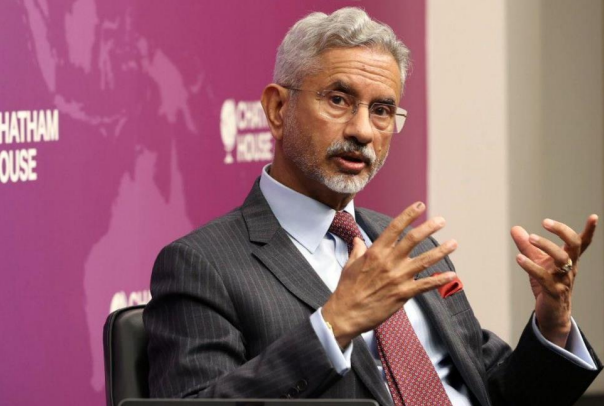Jaishankar Highlights Need for Strategic Autonomy in India’s Trade Approach
India is intensifying its call for India supply chain diversification to strengthen economic resilience amid rising global uncertainties.
External Affairs Minister S. Jaishankar underscored the urgency of reducing over-reliance on a single market, warning that recent disruptions highlight the risks of depending too heavily on limited trade partners.
His remarks come at a time when geopolitical tensions, protectionist policies, and shifting global trade rules continue to reshape the international business environment.
Strategic Autonomy at the Forefront
Addressing business leaders and policymakers, Jaishankar stressed that India’s economic future lies in building strategic autonomy while maintaining strong global trade ties.
He pointed to challenges exposed during recent disruptions—from the COVID-19 pandemic to ongoing geopolitical realignments—that highlighted India’s vulnerabilities in supply chains.
According to Jaishankar, lessons from former U.S. President Donald Trump’s trade policies showed the importance of self-reliance and diversified partnerships. India supply chain diversification , he argued, must ensure its economic strategy is based on a wide network of cooperative relationships, not dictated by a single region.
Lessons from Global Volatility
Over the past five years, businesses in technology, pharmaceuticals, energy, and manufacturing have faced shocks from:
- Trade restrictions
- Tariff wars
- Disrupted logistics networks
For India supply chain diversification, deeply integrated into global markets, these disruptions presented both challenges and opportunities.
Jaishankar emphasized that heavy dependence on one major economy for exports or imports is no longer sustainable. Instead, India supply chain diversification must expand trade and investment ties with Southeast Asia, Africa, Latin America, and Europe to cushion against disruptions and maintain growth momentum.
India’s Push for Resilient Supply Chains
The government has already taken steps to strengthen supply chain resilience.
- Make in India and Production Linked Incentive (PLI) schemes are encouraging domestic manufacturing and attracting global players.
- India supply chain diversification is actively participating in regional and global initiatives such as the Quad alliance (with the U.S., Japan, and Australia), which prioritizes supply chain security.
- Trade agreements with Europe and the Middle East are also being advanced to diversify market access.
Jaishankar’s call reinforces India’s growth model: balancing global integration with domestic self-reliance.
Opportunities for Indian Businesses
For Indian companies, diversification is not just defensive—it’s also a growth opportunity.
Examples include:
- Technology firms expanding partnerships beyond the U.S. to Asia-Pacific and Europe.
- Pharmaceutical exporters diversifying from Western markets to Africa and Latin America.
- Manufacturers reducing dependence on China by building ties across ASEAN and South Asia.
This effort supports India’s ambition to become a global manufacturing hub, leveraging its skilled workforce, domestic market, and strategic location.
Building Long-Term Resilience
Experts believe India’s push for supply chain diversification will shape its long-term economic trajectory.
By investing in multiple markets and suppliers, India supply chain diversification can protect itself from shocks such as sanctions, trade disputes, or pandemics.
Jaishankar clarified that strategic autonomy doesn’t mean isolation, but rather independence in decision-making and flexibility to adapt in a rapidly changing world.
This balanced approach can help India achieve sustainable growth while maintaining ties with both established and emerging economies.
Conclusion
As global dynamics evolve, India’s call for supply chain diversification is a proactive step to safeguard economic interests.
With a focus on strategic autonomy, resilient supply chains, and global engagement, India is positioning itself to weather disruptions while creating new opportunities for growth.
For Indian businesses, the message is clear: relying on a single market is no longer viable. The future lies in diversified partnerships that strengthen resilience and unlock growth in the global economy.Jaishankar Highlights Need for Strategic Autonomy in India’s Trade Approach
India is intensifying its call for supply chain diversification to strengthen economic resilience amid rising global uncertainties.
External Affairs Minister S. Jaishankar underscored the urgency of reducing over-reliance on a single market, warning that recent disruptions highlight the risks of depending too heavily on limited trade partners.
His remarks come at a time when geopolitical tensions, protectionist policies, and shifting global trade rules continue to reshape the international business environment.
Strategic Autonomy at the Forefront
Addressing business leaders and policymakers, Jaishankar stressed that India’s economic future lies in building strategic autonomy while maintaining strong global trade ties.
He pointed to challenges exposed during recent disruptions—from the COVID-19 pandemic to ongoing geopolitical realignments—that highlighted India’s vulnerabilities in supply chains.
According to Jaishankar, lessons from former U.S. President Donald Trump’s trade policies showed the importance of self-reliance and diversified partnerships. India, he argued, must ensure its economic strategy is based on a wide network of cooperative relationships, not dictated by a single region.
Lessons from Global Volatility
Over the past five years, businesses in technology, pharmaceuticals, energy, and manufacturing have faced shocks from:
- Trade restrictions
- Tariff wars
- Disrupted logistics networks
For India, deeply integrated into global markets, these disruptions presented both challenges and opportunities.
Jaishankar emphasized that heavy dependence on one major economy for exports or imports is no longer sustainable. Instead, India must expand trade and investment ties with Southeast Asia, Africa, Latin America, and Europe to cushion against disruptions and maintain growth momentum.
India’s Push for Resilient Supply Chains
The government has already taken steps to strengthen supply chain resilience.
- Make in India and Production Linked Incentive (PLI) schemes are encouraging domestic manufacturing and attracting global players.
- India is actively participating in regional and global initiatives such as the Quad alliance (with the U.S., Japan, and Australia), which prioritizes supply chain security.
- Trade agreements with Europe and the Middle East are also being advanced to diversify market access.
Jaishankar’s call reinforces India’s growth model: balancing global integration with domestic self-reliance.
Opportunities for Indian Businesses
For Indian companies, diversification is not just defensive—it’s also a growth opportunity.
Examples include:
- Technology firms expanding partnerships beyond the U.S. to Asia-Pacific and Europe.
- Pharmaceutical exporters diversifying from Western markets to Africa and Latin America.
- Manufacturers reducing dependence on China by building ties across ASEAN and South Asia.
This effort supports India’s ambition to become a global manufacturing hub, leveraging its skilled workforce, domestic market, and strategic location.
Building Long-Term Resilience
Experts believe India’s push for supply chain diversification will shape its long-term economic trajectory.
By investing in multiple markets and suppliers, India can protect itself from shocks such as sanctions, trade disputes, or pandemics.
Jaishankar clarified that strategic autonomy doesn’t mean isolation, but rather independence in decision-making and flexibility to adapt in a rapidly changing world.
This balanced approach can help India achieve sustainable growth while maintaining ties with both established and emerging economies.
Conclusion
As global dynamics evolve, India’s call for supply chain diversification is a proactive step to safeguard economic interests.
With a focus on strategic autonomy, resilient supply chains, and global engagement, India is positioning itself to weather disruptions while creating new opportunities for growth.
For Indian businesses, the message is clear: relying on a single market is no longer viable. The future lies in diversified partnerships that strengthen resilience and unlock growth in the global economy.









